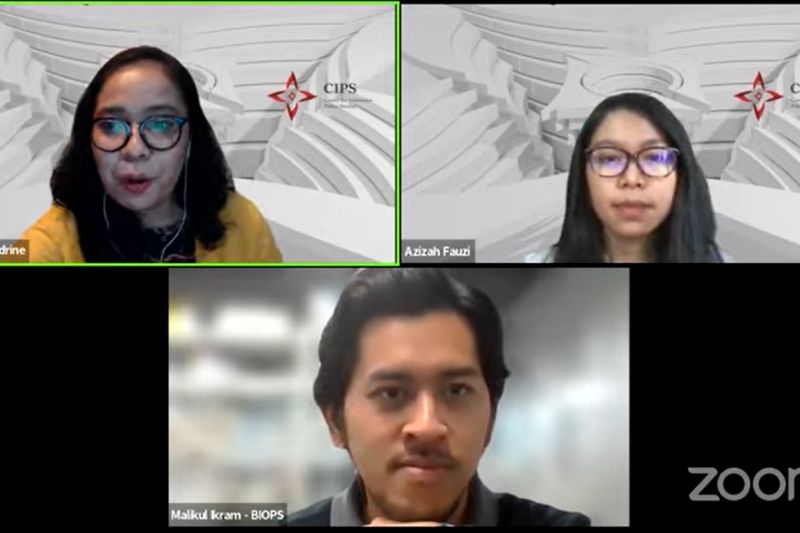
The momentum of Indonesia’s G20 Presidency should be used to attract the youth to the agriculture sector to achieve national farmer regeneration, the Center for Indonesian Policy Studies (CIPS) has said.
The G20 Agriculture Ministers' Meeting should be utilized to gather information related to best agricultural practices of G20 countries so that they can be applied in Indonesia, CIPS researcher Azizah Fauzi said during a discussion on 'Indonesian Youth for the Country's Agriculture,’ accessed online here on Thursday.
"In my opinion, this (the ministerial meeting) can be used by governments or agriculture ministers of various countries involved to share best practices in agriculture. It can also be used as a means of sharing the latest information about technology that can attract young people to take part in the agricultural sector," she remarked.
According to Fauzi, summarized information from the meeting could be distributed to the public so that young people can easily access it and enrich their knowledge of agriculture.
It is hoped that this would change their perception of agriculture as there is actually a lot of potential that can be tapped in the sector, she said.
Based on data from a 2018 survey, the majority of farmers in Indonesia are aged over 45 years, she noted. In fact, only about 10 percent of farmers are under 30 years old, she highlighted.
One way to attract young people to the agricultural sector is the use of modern agricultural technology, she said.
For this, it is important to introduce Indonesian youth to the latest agricultural technology from G20 countries to boost their interest in farming, she added.
She said that Indonesia produces various kinds of agricultural commodities, but its farming potential has not been maximized, and the country has not achieved food security yet.
Regeneration of farmers is one of the ways for Indonesia to achieve national food security, she added.
Related news: Food security must remain central issue for G20: Agriculture Minister
Related news: Leading G20 to realize global food security


















